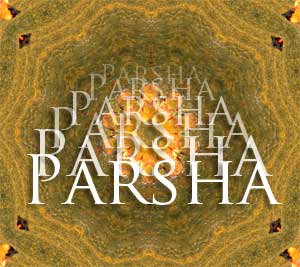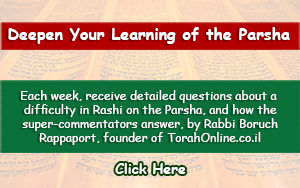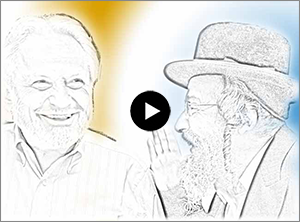Parshas Beshalach – Shabbos Shira
The main theme of Parshas Beshalach is Kriyas Yam Suf and the Shiras HaYam, the splitting of the Sea and the Song that the Jewish people sang to the A’lmighty afterwards. That’s why this Shabbos is called Shabbos Shira. I wrote a post after Pesach last year describing what seems to me to be the essence of what the miracle was. You can find it in my post The Seventh Day of Passover.
A Horse and His Rider
In the Parsha, after Klal Yisroel experienced the redemption from the Egyptians and the miracles at the sea, they were inspired with prophetic vision to sing Shira to the Ribono Shel Olam. In the Shira, Klal Yisroel praises the Ribono Shel Olam as He who threw into the sea the horse and his rider.
I once heard from my Rosh Kollel some 25 years ago (I think in the name of someone), and I will write now what is etched into my memory, I hope it is exact. Miriam and the women also participated in the Shira, the Torah reports that they sang this very verse, praising the A’lmighty as the One who threw into the sea the horse and his rider. Why that verse in particular?
In brief, maybe unfairly brief, my Rosh Kollel said that the gemora says that that learning Torah is the main mitzvah for which one merits Olam Haba. Asks the gemora, women, who aren’t commanded in Limud HaTorah in the same way men are, how will they merit? The gemora answers, by that which they send their children to learn in cheder, and wait for their husbands to return from the Bais Medrash.
The explanation of this statement lies in the Mishna in the first chapter of Makkos, regarding Aidim Zomemim, “false witnesses” so to speak, specific kinds. That someone who is “nitfal”, who tags along and joins to be a (third) witness even though he is not needed, (since for the testimony it would suffice two witnesses), if they are proven liars, zomemim, the third gets the same punishment as the other two even though he didn’t really add anything, so to speak. Concludes there Rabi Akiva, if so, then all the more so for someone who is nitfal, tags along and participates, in a mitzvah even though it could have been done without him, he gets the same reward.
The horse and his rider Hashem threw into the sea. We can ask — what did the horse do that he deserved such a terrible punishment? But that’s the principle — he who tags along, even though he was not necessarily needed, shares the same punishment. So too for the good, that women, who tag along and do their function in order to be supportive of the Torah learning of her husband and children, for that they’ll get the same reward.
That’s why, explained my Rosh Kollel, that the women chose to recite this very verse.
An Axe in the Hand of the Woodcutter
On the actual verse, “A horse and his rider He threw into the sea”, I was inspired this year to explain as follows:
“A horse and his rider He threw into the sea.” I ask, shouldn’t it say “the rider and his horse?” Who’s holding the reigns? Who’s the main entity?
I heard this year (and last year) from a Rav who I don’t have permission to say things over in his name on the internet: We find that Moshe Rabainu was commanded to have appreciation, hakaras hatov, therefore he was not the one who struck the water by the plagues of dam and tzefardaya, and the dust of makas kinim. Aharon was told to do these actions.
We can wonder, where was Moshe’s hakaras hatov to Pharoah himself? Moshe Rabainu grew up in Pharoah’s household until he killed the Egyptian. Said the Rav, that it could be that it is hinted at in makas tzefardaya. Moshe Rabainu says to Pharoah, “hispa’air alay”, Rashi says there, and he brings the posuk from Yeshaya, “it’s like ‘should the axe pride himself over the woodcutter?’ Should he pride himself to say I’m bigger than you?”
It could be that it is hinted here, that Moshe Rabainu was giving Pharoah a hint — You have a very simple way out of this whole mess, listen to my advice. Tell the A’lmighty, “look, I know that I am only a tool in your hands, and I have no control over what is going on. Listen, I resign my position, you’re the boss. If you want to punish the Egyptians, go ahead, just don’t involve me. If you want to take the Jews out, go ahead, just don’t involve me.” But Pharoah didn’t hear it, he held himself to be a god. He wasn’t ready to be an axe in the Hand of the Woodcutter. Until here is what I heard from the Rav.
I add, Pharoah here is comparable to the horse, that is, he said to the Rider keveyachol, “I’m more important than You.” That’s why it says, a horse and his rider etc. Because that was the whole essence of Pharoah, the horse putting himself first. And that whole concept, that whole reality, of the horse putting himself first, Hashem Yisborach threw into the sea.






Leave A Response